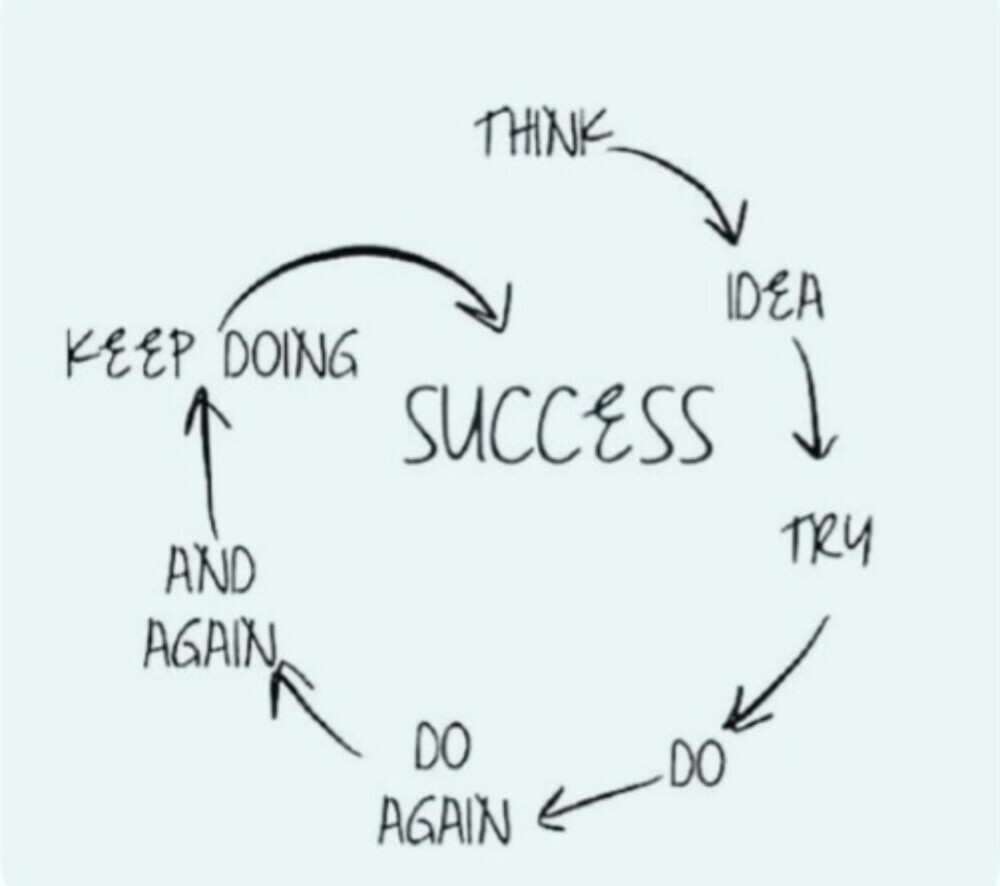
Here’s a little transparency, my website contains affiliate links. This means if you click and make a purchase, I may receive a small commission. Don’t worry, there’s no extra cost to you. It’s a simple way you can support my mission to bring you quality content.
By Jena, Your Helping-Hand Affiliate🤝
Affiliate marketing is about promoting someone else’s products through affiliate links and earning a commission whenever you make a sale. Think of it like being a bridge – connecting people to products…products they may love, but haven’t discovered yet! You want to promote products or services that solve real problems for your target audience.
Building a successful affiliate marketing business is not a shortcut to wealth. You’re not going so see results right away, so please do not get into affiliate marketing expecting that. It takes TIME and requires work, dedication, and persistence. Affiliate marketing being a thriving industry with no shortage of products or services to market, there’s great oopportunity here! There are digital buyers everywhere! It’s really worth the time and effort you put into this and worth the wait to get results.
If you want to succeed in affiliate marketing, start with a clear plan that outlines your goals with your target audience and connect the two with trust. TRUST is the HEART of any affiliate marketing business.
Trust is not the only thing you’ll need to build a solid foundation in affiliate marketing though. There are other valuable concepts that need to be applied as well.
Laying The Groundwork: Essential Preliminaries For Affiliate Marketing
- UNDERSTANDING THE BASICS
By understanding the fundamentals of affiliate marketing, you can start to explore this industry as a potential revenue stream. It’s about connecting the right audience with the right products and earning a share of the profits from sales generated through your marketing efforts. Here’s the basics:
- Affiliates join an affiliate program and receive a unique link or tracking code.
- They promote the merchant’s products or services on their platforms, like their website or social media channels.
- When a consumer clicks on an affiliate link and make a purchase, a cookie tracks the sale.
- The affiliate earns a commission from the sale tracked by the link.
https://www.wealthyaffiliate.com?a_aid=f3f45629
This link will take to the platform I use called Wealthy Affiliate, where I receive all my training and have my business hub.

- TRANSPARENCY AND TRUST
This is fundamental to the success of affiliate marketing. Trust is the currency that converts visitors into customers. Consistent, honest and reliable content and interactions are key to building this trust over time. Be transparent about your affiliate relationships. Disclose your affiliate links letting your visitors know that when they click on them, you will earn a commission if they purchase.
It’s important to choose affiliate partners who share the same values as you and your brand and resonates with your audience. Remember, your reputation in affiliate marketing can be your success or downfall.

- WEBSITE DESIGN
This is critically important because it gives your visitors their first impressions of your business. If you have a poorly designed website that is hard to navigate or a website that takes forever to load, guess what… your visitors will go elsewhere and you’ve just lost a potential customer possibly to someone else. This is why it’s crucial to ensure a good user experience when visitors come to your website. A good user experience will keep them engaged longer, and possibly keep them coming back.
Also, effective website design is inter-twined with SEO practices. A site that’s designed with SEO in mind can achieve higher rankings in search engines leading to increased visibility and traffic.

- CHOOSING THE RIGHT NICHE
For your long term success, you’ll want to choose something that you’re passionate about and resonate with. Take the time to research and understand your chosen niche. Make sure it aligns with your interests, expertise and market demand. Although picking a niche that has a sizable audience and a demand for products or services is important, picking a niche solely on these things will not be beneficial to you.
What happens when you’re not passionate or interested about the work you do? Is it hard to get motivated to work? Most likely you will work only out of need, not enjoyment. You can enjoy the work you do by choosing a niche you enjoy. If it resonates with you, that will reflect to your customers which will establish trust. Besides, if you’re passionate about what you do, you’ll want to work because it won’t even feel like you’re working! Remember also, if the niche that you pick doesn’t resonate with you, your potential customers will pick up on that and most likely turn away.
You can narrow the competition by focusing on a targeted specific subset of customers in a niche. This helps reach the right people you are trying to target and gives you a better chance to stand out and gain a competitive edge.
For example, instead of a dog niche, focus on a particular breed. That would be a sub-niche. By specializing in a particular niche, you become an expert in that area.

- JOINING THE RIGHT AFFILIATE PROGRAMS
This is important because it directly impacts your reputation, earning potential and audience engagement.
Choosing the right program
This can offer value to your audience and enhance your reputation as a trusted source of information and recommendations potentially ganing customers.
Choosing the wrong program
This can harm your reputation if they offer low quality products or services, engage in unethical practices or have poor customer service. Associating yourself with such programs damage trust with your audience, and damage your credibility and authority in your niche potentially losing customers.
Look for programs that offer high-quality products or services, competitive commissions, reliable tracking and excellent support. Research the reputation of affiliate networks and individuals to ensure they align with your business goals and values. Also consider the affiliate terms and conditions, payment methods and cookie duration to maximize your earnings potential.
Your reputation is the foundation upon which trust, credibility and long-term relationships with your audience and affiliate partners are built.
Ultimately, this will determine the success and sustainability of your affiliate marketing efforts, so don’t promote programs that are not credible or trustworthy.
Having a successful affiliate partner involves commitment, transparent communication and a track record for driving high-quality leads or sales. Choose wisely! See my post for more information on joining affiliate marketplace programs:
How To Find The Best Affiliate Programs In Your Niche

- CREATING QUALITY CONTENT
Content is KING in affiliate marketing! It’s the backbone of successful affiliate marketing on your website.
Create valuable, high-quality, engaging content that solves problems for your target audience, and educates and entertains. It could be in the form of blog posts, videos, podcasts, social media posts and more.
Importance of Valuable Content
Engagement – High-quality content engages your audience keeping them on your site longer increasing the likelihood of them clicking on affiliate links.
Trust – When visitors perceive your content as valuable and reliable, they are more likely to trust your recommendations and click on affiliate links.
Authority – Consistently providing valuable content, you establish yourself as an authority in your niche. This authority enhances the credibility of your affiliate recommendations and increases conversions.
SEO – Quality content improve’s your site’s search engine optimization (SEO), making it more likely to rank higher in search engine results. This increases organic traffic to your site and the potential for affiliate conversions.
Longevity – High-quality content has staying power. It continues to attract traffic and generate affiliate income over time, providing a more sustainable source of revenue.
Focus on providing valuable information while incorporating affiliate links naturally within your content to avoid excessive promotion to maintain authenticity. Consistent, high-quality content will attract and retain your audience while driving affiliate sales.
Use on-page (link building) and off-page (social media posts) to improve your website’s visibility and attract your targeted audience.

- SEO (SEARCH ENGINE OPTIMIZATION)
Conduct keyword research to identify relevant search terms and optimize your content accordingly. This helps to create high-quality, informative content that addresses user intent and provides value.
Importance of SEO
Visibility – SEO helps your affiliate website rank higher in search engine results pages (SERP’s), increasing its visibility to potential visitors. Higher visibility means more organic traffic, which can lead to more affiliate conversions.
Targeted Traffic – Effective SEO techniques such as keyword optimization and content targeting, attract targeted traffic to your site. These visitors are more likely to be interested in the products and services you’re promoting through affiliate links increasing the chances of conversions.
Credibility – Websites that rank higher in search engine results are often perceived as more credible and trustworthy by users. Optimizing your site for SEO, you can positively impact user trust in your affiliate recommendations.
Long -Term Results – Once your site ranks well for relevant keywords, it can continue to attract organic traffic and generate revenue over time with minimal ongoing effort.
Overall, SEO is essential for driving targeted traffic, enhancing credibility and ensuring the long-term success of an affiliate website.
For more information on SEO, see my post:
What Is The Importance Of Seo In Affiliate Marketing

- BUILDING RELATIONSHIPS
Building strong relationships with your website audience and other affiliates will help you with your success. It involves fostering trust, open communication, and providing value to both your audience and the merchants you promote.
Ways to Build Relationships with your Audience
Understand Your Audience – Identify your target consumers. Creat buyer persona to determine the audience demographics you’re catering to. Consider factors like age, groups, income levels and interest. Also, understand the topics they’re interested in and the channels they’re most active on. This will help you to reach out to build stronger relationships.
Create Valuable Content – Regularly publish content that is informative, entertaining or solves a problem for your audience. Address their pain points, provide real solutions and add value.
Email Marketing – Use email newsletters to keep your audience updated. Sharing exclusive content can foster a more personal connection.
Offer Free Resources – This can be resources such as eBooks, guides or tools that addresses your audience’s needs or interests.
Host Webinars or Live Q&A Sessions – Interact with your audience in real-time, answer their questions and provide valuable insights.
Personalize User Experience – Tailor your website content and offers based on user behavior and preferences to make visitors feel understood and valued.
Surveys and Feedback – Regularly solicit feedback from your audience to understand their needs and preferences better.
Create a Community Forum or Group – Establish a platform where your audience can interact with each other, share experiences, and ask questions related to your niche.
Be Authentic and Transparent – Show the human side of your brand by sharing behind-the-scenes content, stories and experiences.
Building relationships takes time and consistent effort. It’s not a set-it and forget-it type business relationship. Regular communication with your visitors and can lead to better insights to what’s working well within the network. Regular communication with your affiliate managers, can lead to better deals to offer your potential customers
Be genuine, provide value and actively engage with your audience to foster lasting connections. Connect with your audience through personalization. Remember, effective marketing is about them, not you.

- GETTING TRAFFIC AND CONVERTING TO SALES
You want to effectively combine getting traffic to your website, and converting that traffic into sales. Start by optimizing your website for search engines to attract organic traffic. Additionally, utilize paid advertising, social media marketing, and content marketing to drive targeted traffic. Once visitors land on your site, ensure it’s user-friendly, and optimized for conversions through compelling calls-to-action, clear product descriptions, and a easy checkout process. Regularly analyze data to refine your approach and continually improve both traffic generation and conversion rates.
Remember, the key is to provide value at every step of the customer’s journey and make it easy for them to make a purchase decision.

- ANALYTICS
Analytics refers to the process of collecting, analyzing, interpreting and presenting data to gain insights and make informed decisions.
In the context of websites and digital marketing, it involves tracking user behavior, website performance and traffic, marketing strategies, conversion rates, click-through rates and other key aspects of online presence. These features provide valuable insights to help you make data driven decisions.
Analytics also helps businesses identify trends, patterns and opportunities in their market, industry and audience. This allows them to capitalize on emerging trends, address potential challenges and stay ahead of the competition.
Types of Analytics
Descriptive – Interpreting historical data to identify trends and patterns
Diagnostic- Determine why something has happened based on historical data
Predictive – Using statistics to forecast future outcomes
Prescriptive – Applying testing and techniques to determine the best outcome in a given scenario
Overall, analytics plays a crucial role in helping businesses understand their digital presence, optimize their marketing efforts and achieve their goals effectively.

- CONTINOUS LEARNING, ADAPTATION AND FLEXIBILITY
In the dynamic landscape of affiliate marketing, the only constant is change. To thrive in this industry you’re just going to have to embrace it. How? By continually learning, being adaptable and flexible.
Technology is always advancing at an unprecedented rate and consumer behaviors shift rapidly. In addition, marketing platforms change, trends are always changing, and there are regular algorithm updates all keeping this an ever-evolving industry. Change is enetivable. Maintaining a flexible mindset enables affiliates to adapt to shifting circumstances and sieze opportunities for growth.
Staying informed, continually learning, and always being adaptable and flexible empowers affiliates to remain competitive and innovative.

- PATIENCE AND PERSISTENCE
In affiliate marketing, it really does take both of these to succeed. Building an affiliate marketing business takes TIME requiring patience and the keep-it-going mentality, persistently working at your business and not giving up.
There will be failures and challenges in this business, but if you’re persistent, you can overcome them. Success in affiliate marketing often comes to those who are persistent in their marketing efforts. Persistence enables marketers to continuously learn, adapt to changes and employ new strategies. Patience allows you to learn from these experiences and persist through difficult times.
In essence, patience helps you stay the course while persistence ensures you keep moving forward, adapting and improving your strategies to achieve your goals in affiliate marketing.

FINAL THOUGHTS
Continuous learning, adaptation and flexibility are indispensable attributes for success in affiliate marketing. By having a mindset of curiosity, resilience and adaptability, affiliates can navigate the complexities of the industry, stay ahead of the curve, and achieve sustainable long-term success.
These 12 steps are fundamental in laying the groundwork to give you a solid foundation for your affiliate marketing business. Remember though, what I stated in the beginning, “TRUST is the HEART of any affiliate marketing business.” So when you’re building out all these 12 steps, remember to build them on TRUST!
If you would like to start and build a online business in affiliate marketing, click the link below and you can get started for FREE using the same platform I use for my business within Wealthy Affiliate. They will give you step-by-step training. They will let you try it and see if it interests you at no cost. https://www.wealthyaffiliate.com?a_aid=f3f45629

Check out my
* FUN FACEBOOK PAGE!!!*
You’ll find funny memes, jokes and inspiration!
Click this link to take you there!
https://www.facebook.com/profile.php?id=61557740904317&mibextid=ZbWKwL

Looks like Prowler has been collecting sea shells instead of working.🤦♀️ If you haven’t met Prowler before now, click this blue link About Jena to officially meet him and see what his job is supposed to be here doing instead of collecting sea shells! 😁 Well, as long as he gets his work done I suppose. 🤷🏻♀️ I mean the beauty of this business is that you can work at the beach…as long as you actually do your WORK that is…😁⛱️
Tell me what you think about this post on How To Lay A Solid Foundation For Your Affiliate Marketing Business. You can leave me a comment below! Would love to hear any thoughts, ideas, suggestions or questions you may have! Or contact me at:
mailto:Jena@cozyzonesolutions.com
Peace be with you and remember:
GOD LOVES YOU!!! ❤️❤️❤️
Jena 🌻🪻🌸

